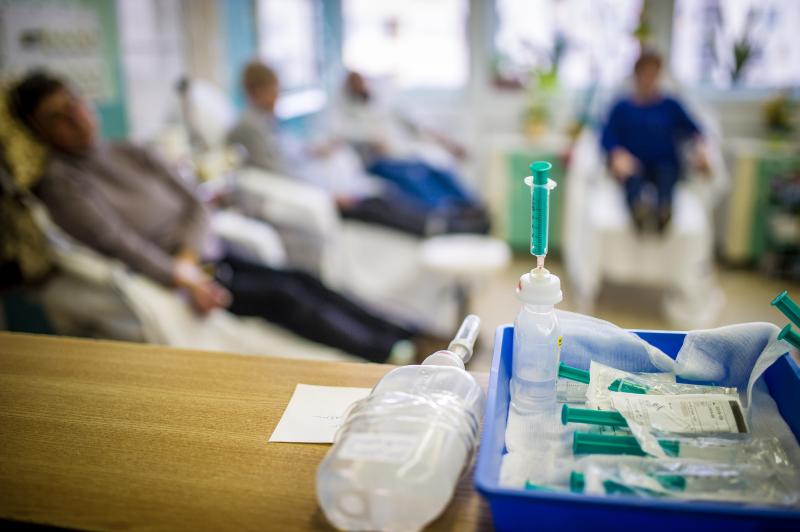Cancer patients in dire straits amid COVID-19 pandemic





The novel coronavirus disease (COVID-19) pandemic appears to have a significant impact on oncological care, according to a study, which stresses the need for psycho-oncological support for cancer patients.
“In general, most patients were very concerned about the impact of the COVID-19 pandemic on their oncological treatment or follow-up,” the researchers said, noting that patients in code red regions expressed more concern than those in other regions, independent of treatment adjustments.
An online survey was conducted between 29 March 2020 and 18 April 2020 to examine patient perspectives on oncological care. The nationwide survey consisted of 20 questions on four topics, namely patients’ characteristics, contact with the hospital, consequences of the COVID-19 pandemic, and concerns about COVID-19.
A total of 5,302 patients with cancer completed the survey, of whom 30 percent reported consequences for their oncological treatment or follow-up. In several cases, patients shifted from hospital visit to consultation by phone or video. [Eur J Cancer 2020;136:132-139]
Immunotherapy (32 percent) was the most frequently adjusted treatment, followed by chemotherapy (30 percent). Fifty-five percent of patients with delay in treatment and 63 percent of those who discontinued therapy were “very” concerned about the consequences of the COVID-19 pandemic.
Such consequences were independent of regional differences in COVID-19 incidence, but patients in regions with high incidence expressed significantly more concern.
Notably, most patients with curable cancer did not cease treatment, but those with incurable disease more often postponed their therapy. The latter were more concerned about the pandemic and the risk of infection with SARS-CoV-2, the causative agent of COVID-19.
These concerns were driven by fear not to be admitted to the intensive care unit in case of severe COVID-19, according to the researchers, noting that such fear is conceivable given the strict triage criteria brought about by capacity issues and restrictive national guidelines for the treatment of patients with incurable malignancies.
“These findings indicate that all patients could benefit from more psycho-oncological support and information, for example, by use of webinars,” the researchers said. “Additional support for patients facing the daily consequences of the COVID-19 pandemic would be beneficial.”
The COVID-19 pandemic has exhausted existing healthcare system capacities in many parts of the world and had major consequences on non-COVID-19 medical care, specifically on cancer treatment. [https://apps.who.int/iris/bitstream/handle/10665/331685/nCoVsitrep01Apr2020-eng.pdf; N Engl J Med 2020;382:1708-1720; Eur J Cancer 2020;132:17-23]
For instance, several studies have reported that cancer patients have a higher risk of COVID-19 and that malignancy could heighten the risk of a more severe course of the respiratory disease. Another study suggested that systemic anticancer treatment, such as chemotherapy, may increase the risk of severe infection. [Lancet Oncol 2020;21:335e7; Cancer Discov 2020;10:783e91; Cancer Cell 2020;37:742e5; Infect Dis Ther 2017;6:69e83]
“Considering these factors, physicians and patients are confronted with unprecedented uncertainties about the safety of cancer treatment during this pandemic, balancing between the risk of exposure to SARS-CoV-2 and the risks of postponing life-saving or life-prolonging cancer treatments,” the researchers said.
Several international societies and committees have responded to these concerns by developing guidelines for oncology physicians. However, most of these guidelines are based only on expert opinions, and scientific evidence has not yet been generated on the impact of COVID-19 on oncological care and patients’ perspectives, according to the researchers. [Eur J Cancer 2020;132:5e7; ESMO Open 2020;doi:10.1136/esmoopen-2020-000765]